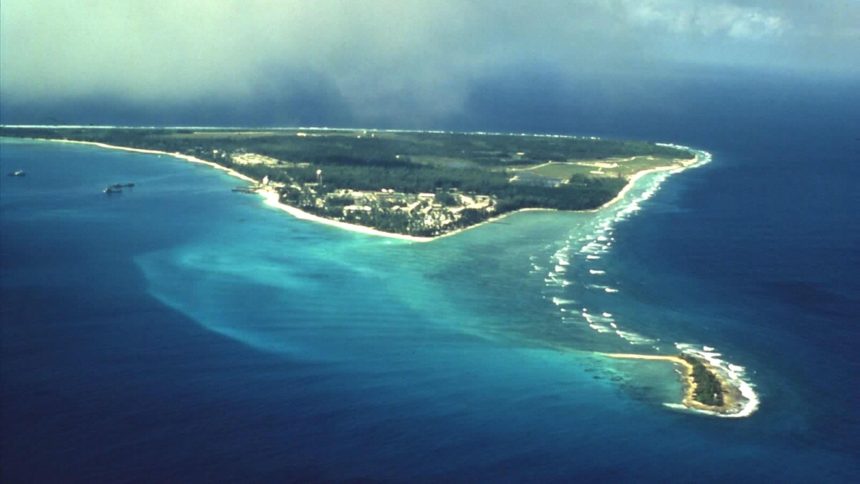As reported by BBC, the UK’s agreement to cede sovereignty of the Chagos Islands to Mauritius, while maintaining control of the key military base on Diego Garcia under a 99-year lease, has been delayed. The decision to pause the treaty follows a shift in the UK’s position, now opting to consult with the incoming Trump administration before finalizing the deal.
The agreement, announced in October, was described by outgoing U.S. President Joe Biden as a “historic agreement” that secured the future of Diego Garcia, a strategic joint US-UK military base critical to global security. The Biden administration had greenlit the treaty, and Mauritian officials were reportedly prepared to approve it this week. However, according to sources close to the negotiations, the UK has opted to wait for input from President-elect Donald Trump’s administration, which takes office next week.
A spokesperson for UK Prime Minister Sir Keir Starmer defended the delay, stating it was “perfectly reasonable for the US administration to consider the details” of the agreement. However, critics, including Shadow Foreign Secretary Priti Patel, called the move a “complete humiliation” for the prime minister, accusing the government of rushing to finalize the treaty before Trump’s inauguration.
Strategic and Political Concerns
While it remains unclear whether the Trump administration would oppose the deal, concerns have been raised by Trump’s incoming Secretary of State, Marco Rubio, who described the agreement as a “serious threat.” Rubio argued that transferring sovereignty to Mauritius, a nation with significant ties to China, could pave the way for Chinese influence in the strategically vital region.
Former Reform UK leader Nigel Farage echoed similar sentiments, warning that the agreement could strain US-UK relations under Trump’s leadership. Farage stated that any perceived weakening of Diego Garcia’s strategic importance would “fracture the special relationship” between the two nations.
Despite these concerns, Prime Minister Starmer defended the agreement during a parliamentary session, emphasizing its origins under the previous Conservative government. He maintained that the treaty would safeguard the operational effectiveness of the Diego Garcia base.
Historical Context and Controversy
The Chagos Islands, part of the British Indian Ocean Territory, were separated from Mauritius in 1965, before Mauritius gained independence in 1968. The UK forcibly evicted over 1,000 Chagossians to establish the Diego Garcia military base, a move that has drawn international condemnation. The United Nations’ highest court has since declared the UK’s administration of the islands as “unlawful.”
The proposed agreement would allow Mauritius to initiate a resettlement program for displaced Chagossians, though Diego Garcia would remain under military control. However, some members of the Chagossian community have criticized the negotiations, citing a lack of consultation.
Financial and Diplomatic Implications
The financial details of the deal remain undisclosed, but critics argue that it could cost British taxpayers billions. Conservative leader Kemi Badenoch condemned the negotiations as a “disastrous” surrender of British territory and accused the government of rushing an agreement that could undermine national security.
Proponents, including UK Foreign Secretary David Lammy, have defended the treaty as a pragmatic solution that solidifies the legal status of Diego Garcia and addresses historical grievances.
Uncertain Future
While the Biden administration supported the deal, questions persist within the U.S. over its potential to expand China’s strategic reach. With Trump set to take office amid pressing global conflicts, it is uncertain whether his administration will prioritize the Chagos Islands agreement.
Diplomatic sources suggest that delaying the treaty to secure U.S. approval aligns with the UK’s long-term strategic interests. However, the controversy underscores the complex geopolitics surrounding the Indian Ocean archipelago and the enduring legacy of colonialism.




